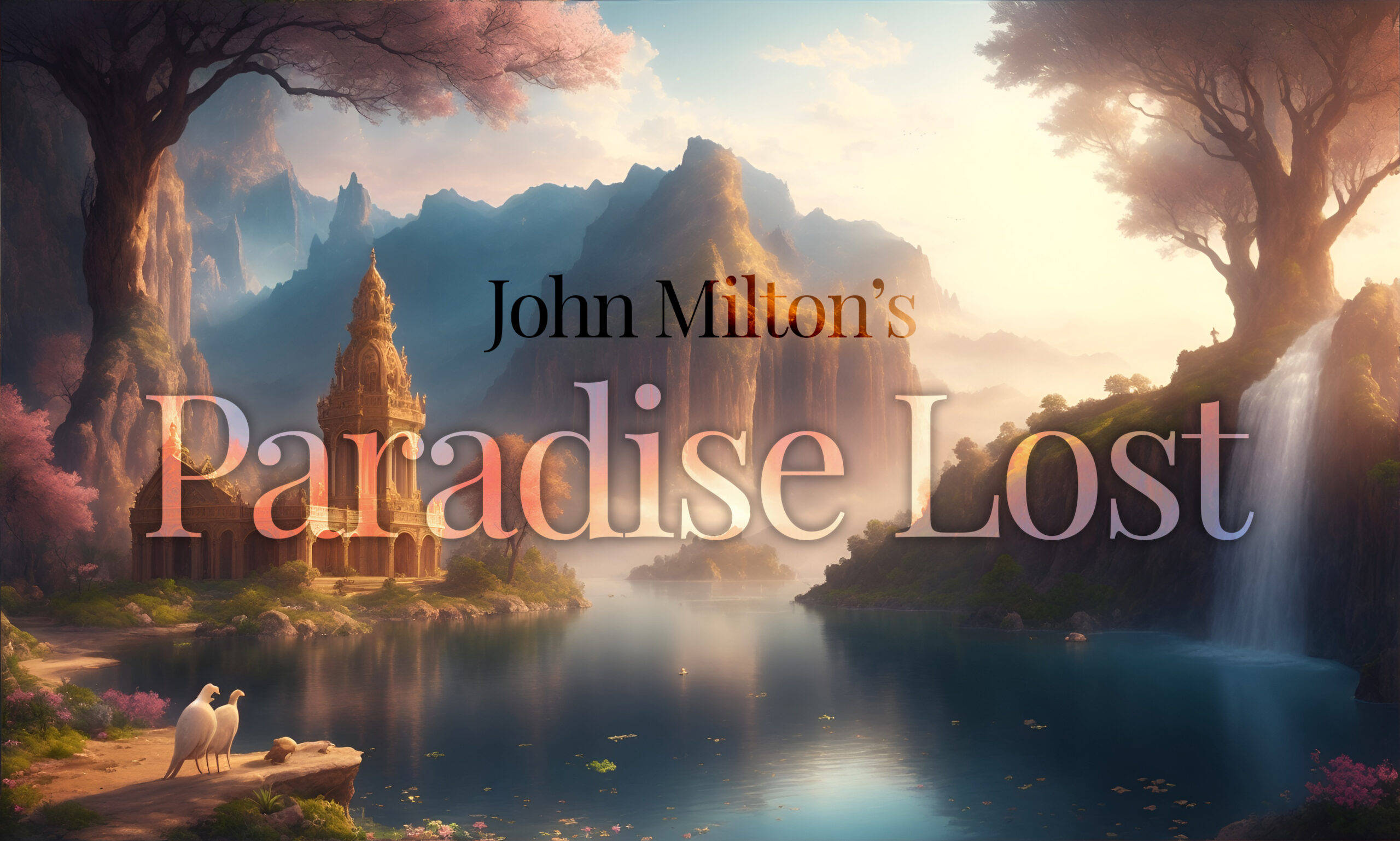Explore the theme of sin and redemption in Paradise Lost. How does Milton depict the fall of humanity and the subsequent possibility of redemption? Discuss the characters’ journeys towards redemption and the theological implications of their actions.

Sin and Redemption in Paradise Lost
The theme of sin and redemption is a central focus in John Milton‘s epic poem Paradise Lost. Milton explores the Fall of humanity through Adam and Eve’s disobedience in the Garden of Eden, as well as the subsequent possibility of redemption through divine grace. This theme reflects Milton’s theological beliefs and engages with fundamental questions of human existence, free will, and divine mercy. In this analysis, we will delve into the depiction of sin and redemption in Paradise Lost, examining the characters’ journeys, the theological implications of their actions, and the overarching message conveyed by Milton.
The poem opens with the aftermath of Satan’s rebellion and expulsion from Heaven, setting the stage for the introduction of sin into the world. Satan, consumed by pride and envy, plots revenge against God by tempting humanity. His goal is to corrupt Adam and Eve, leading them to disobey God’s command and partake of the forbidden fruit from the Tree of Knowledge. Through this act of disobedience, sin enters the world, and humanity falls from its original state of innocence.
Milton portrays sin as a corrupting force that permeates every aspect of existence. He describes sin as a “monster” (Book II, line 648) with a “thousand monstrous forms” (Book II, line 650), highlighting its destructive nature. Sin is personified as a female figure, the daughter of Satan and his consort, who emerges from Satan’s head. This depiction underscores sin’s origin from the fallen angel and its association with evil.
The consequences of sin are explored through the narrative of Adam and Eve. Their initial state of blissful innocence in the Garden of Eden is disrupted when Satan successfully tempts Eve to eat the forbidden fruit. Adam, out of love for Eve, also partakes of the fruit, knowingly disobeying God’s command. This act of disobedience results in their expulsion from the Garden and the introduction of sin, suffering, and mortality into the world.
Milton portrays the fall of Adam and Eve as a tragic event, marking the loss of their idyllic state and the onset of human suffering. Their fall represents the loss of communion with God and the rupture of their relationship with Him. However, even in their fallen state, Milton suggests the possibility of redemption through divine mercy and grace.
The theme of redemption is most prominently explored through the character of the Son of God, who offers himself as a sacrifice to atone for the sins of humanity. The Son’s willingness to take on human form and endure the agony of crucifixion exemplifies God’s profound love and mercy towards humanity. His sacrifice offers the promise of redemption and the opportunity for humans to reconcile with God.
Milton presents the Son as the embodiment of divine justice and mercy. Through the Son’s sacrifice, God’s justice is satisfied, as the punishment for sin is borne by an innocent being. At the same time, God’s mercy is demonstrated by offering humanity a path to redemption. The Son’s redemptive act offers hope for forgiveness and restoration of the divine relationship.
The journey towards redemption is also depicted through the characters of Adam and Eve. Despite their initial disobedience and fall, Milton portrays them as repentant and remorseful for their actions. They recognize their guilt and seek forgiveness from God. In their prayers, they express deep regret and acknowledge their dependence on God’s mercy for their redemption.
The process of redemption for Adam and Eve involves self-reflection, remorse, and an earnest desire to reconcile with God. Their journey towards redemption is characterized by a profound sense of humility and a recognition of their own inadequacy in the face of divine justice. Milton highlights the significance of repentance and the genuine desire to turn away from sin and seek divine forgiveness.
Another important aspect of redemption in Paradise Lost is the role of human agency and free will. Milton emphasizes the idea that redemption is not forced upon individuals but requires a willing acceptance of God’s mercy. While God provides the opportunity for redemption, it is up to the individuals to choose whether to embrace it. This underscores the importance of free will and the responsibility of humans in their own salvation.
Throughout Paradise Lost, Milton also presents theological debates and discussions among the angelic hosts, exploring the nature of divine justice and the relationship between justice and mercy. These discussions shed light on the complex theological implications of sin and redemption. The angels ponder the possibility of redemption for fallen humanity and the tension between justice and mercy in God’s divine plan.
Milton’s portrayal of sin and redemption in Paradise Lost ultimately emphasizes the depth of God’s love, mercy, and forgiveness. Despite the fall of humanity and the introduction of sin, God’s plan for redemption allows for the possibility of restoration and reconciliation. The poem serves as a theological exploration of the complexities of sin and redemption, engaging with profound questions of human nature, free will, and the nature of God’s divine attributes.
In conclusion, the theme of sin and redemption in Paradise Lost is a central and profound exploration of human existence, divine justice, and divine mercy. Milton depicts sin as a corrupting force that enters the world through the fall of humanity. However, he also presents the possibility of redemption through divine grace, exemplified by the sacrifice of the Son of God. The characters of Adam and Eve undertake a journey towards redemption, marked by repentance, self-reflection, and a desire to reconcile with God. Milton’s exploration of sin and redemption delves into theological debates and examines the intricate relationship between justice and mercy. Ultimately, Paradise Lost offers a message of hope, emphasizing God’s profound love, mercy, and the opportunity for human redemption.
*****
Read More: Questions and Answers from Paradise Lost by John Milton


